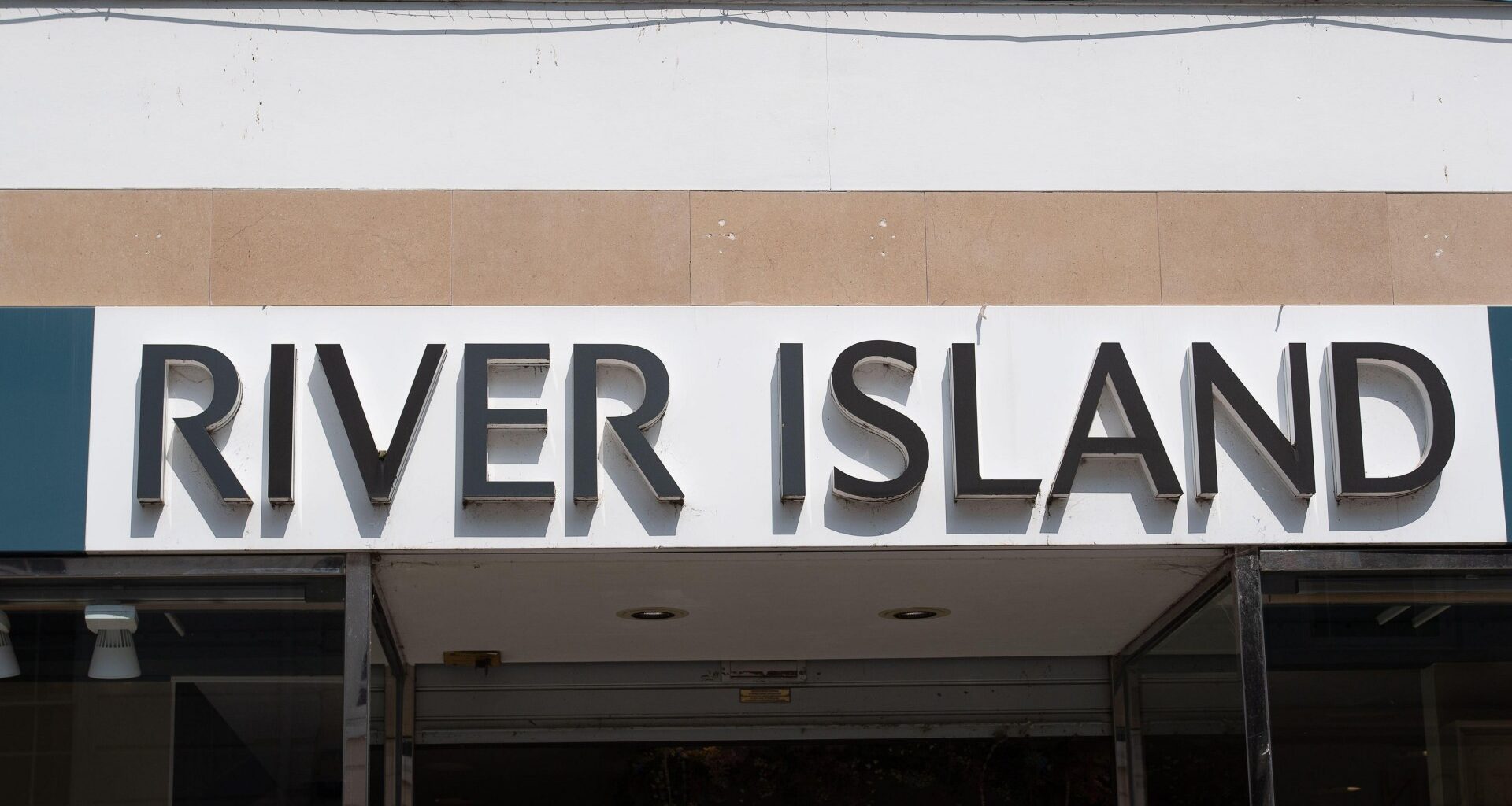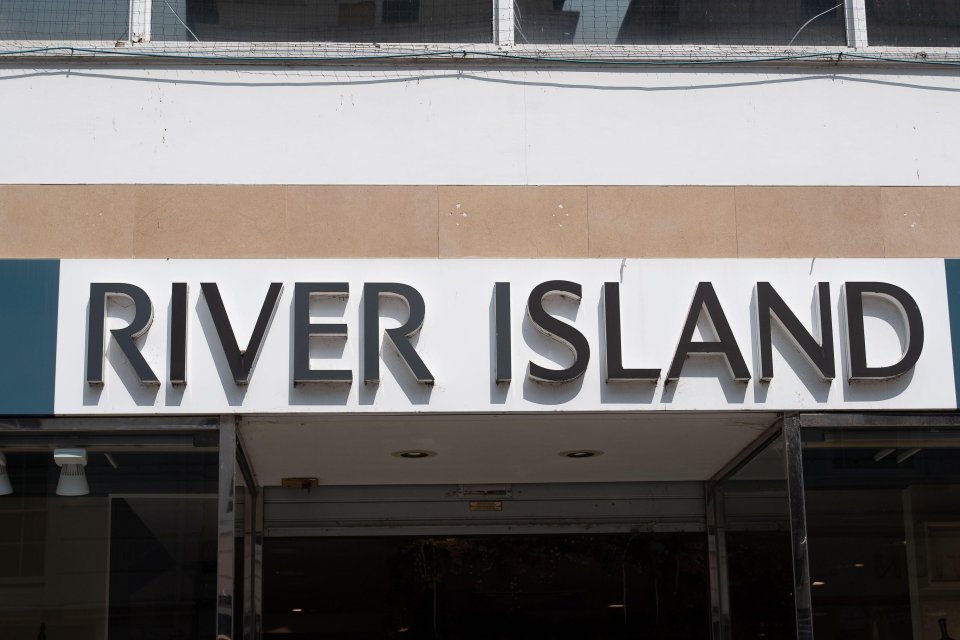RIVER Island is said to be on the “brink of collapse” unless creditors and landlords approve its rescue plan.
The iconic fashion chain could run out of money come August if plans to shut 33 stores and cut rents on a further 71 are not given the green light.
1
River Island has found itself in hot waterCredit: Alamy
That is according to The Telegraph, which said the high street staple is set to put the terms in front of the High Court next week.
The retailer has already revealed which 33 branches will shutter and has confirmed they will close in January.
River Island is also looking to write off a series of debts, including those to landlords, to help keep the brand afloat.
A formal restructuring plan written up by the chain’s advisers, PwC, states that the chain will not be able to “continue trading” and would be “subject to administration or other insolvency proceedings” if plans are not approved.
But the brand, which was founded by the Lewis Family in 1948, needs to get a seal of approval from 75% of its creditors to push forward with its proposal.
If this goes ahead, then an emergency loan from the billionaire family will be unlocked and the company will be able to pay its bills.
Landlords of the stores not facing closure could also be asked to accept zero rental payments on stores.
River Island is also proposing three-year rent cuts of between 75% and 25%.
A spokesperson said: “River Island circulated its proposals for a Restructuring Plan to creditors on June 20th. In combination with the company’s ongoing Transformation Strategy, the Plan is a proactive measure to place the company on a firm footing.
“We have been having positive conversations with key stakeholders and are confident that we will achieve approval of the Plan in the next few weeks.”
Major card chain with 163 shops launches closing down sales ahead of shutting its doors for good
It is also important to note that River Island stores and its online website remain open and trading as usual.
It comes amid a challenging time for the brand, as a rise in ultra-cheap fast fashion and low consumer spending has hit retail businesses hard.
In a statement, issued last month, Ben Lewis, chief executive officer, said: “River Island is a much-loved retailer, with a decades-long history on the British high street.
“However, the well-documented migration of shoppers from the high street to online has left the business with a large portfolio of stores that is no longer aligned to our customers’ needs.
“The sharp rise in the cost of doing business over the last few years has only added to the financial burden.”
Trouble at the fashion firm
Accounts for River Island Clothing Co for the year ending December 30, 2023, showed the firm made a £33.2 million pre-tax loss.
Then the turnover during the following 12 months fell by more than 19% to £578.1 million.
The retailer’s most recent accounts on Companies House also warned of worsening financial and operational risks.
They said: “The key business risks for the group are the pressures of a highly competitive and changing retail environment combined with increased economic uncertainty.
“A number of geopolitical events have resulted in continuing supply chain disruption as well as energy, labour and food price increases, driving inflation and interest rates higher and resulting in weaker disposable income and lower consumer confidence.”
In recent months, a number of stores have closed including in Corby, Banbury and Chesterfield.
Which River Island stores face closure?
River Island has already named the 33 stores that it plans to close as part of its restructuring
You can check out the full list of 33 here:
- Beckton
- Bangor Bloomfield
- Wrexham
- Edinburgh Princes Street
- Hereford
- Surrey Quays
- Didcot
- Sutton Coldfield
- Aylesbury
- Burton-Upon-Trent
- Northwich
- Taunton
- Workington
- Falkirk
- Cumbernauld
- Kirkcaldy
- Gloucester
- Hartlepool
- Brighton
- Lisburn
- Norwich
- Oxford
- Poole
- Kilmarnock
- Hanley
- Barnstaple
- Grimsby
- Leeds Birstall Park
- Rochdale
- Great Yarmouth
- St Helens
- Stockton-on-Tees
- Perth
The 33 shops earmarked for closure will stay open until January 2026 to make the most of peak trading.
RETAIL PAIN IN 2025
The British Retail Consortium has predicted that the Treasury’s hike to employer NICs will cost the retail sector £2.3billion.
Research by the British Chambers of Commerce shows that more than half of companies plan to raise prices by early April.
A survey of more than 4,800 firms found that 55% expect prices to increase in the next three months, up from 39% in a similar poll conducted in the latter half of 2024.
Three-quarters of companies cited the cost of employing people as their primary financial pressure.
The Centre for Retail Research (CRR) has also warned that around 17,350 retail sites are expected to shut down this year.
It comes on the back of a tough 2024 when 13,000 shops closed their doors for good, already a 28% increase on the previous year.
Professor Joshua Bamfield, director of the CRR said: “The results for 2024 show that although the outcomes for store closures overall were not as poor as in either 2020 or 2022, they are still disconcerting, with worse set to come in 2025.”
Professor Bamfield has also warned of a bleak outlook for 2025, predicting that as many as 202,000 jobs could be lost in the sector.
“By increasing both the costs of running stores and the costs on each consumer’s household it is highly likely that we will see retail job losses eclipse the height of the pandemic in 2020.”

